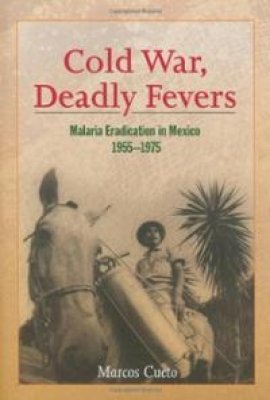Marcos Cueto
Former Fellow
Professional Affiliation
Professor, Universidad Peruana Cayetano Heredia
Expert Bio
I was born and raised in Lima. I was interested in social history and studied at the Universidad Católica of Peru. When I pursued a masters and a doctoral degree at Columbia University in the 1980s, I found a unique combination of professors working in Latin American social history and history of medicine in Brazil. As a result, I began to explore the possibilities of a social history of science and medicine in Peru. I also spent one year in the Science, Technology and Society Program of the Massachusetts Institute of Technology as a postdoctoral Mellon Fellow. In the early 1990s, I began teaching the history of public health at an important medical school of Peru. I also became a member of the Instituto de Estudios Peruanos, an NGO created in the 1960s devoted to interdisciplinary studies in the social sciences. During this period, I learned from students and colleagues, usually not historians who worked on political science, health policy, medical anthropology or socio-medical studies. I was frequently asked to demonstrate the relevance of history to their fields and I tried to respond to the best of my abilities. For example, I emphasized that history analyzes problems that are similar to what we experience today.I have worked on the role played by the Rockefeller Foundation in Latin American science and medicine, on the history of international health in the 20th century, and in the diverse responses and perceptions of epidemic diseases. I am also interested in more recent developments such the history of AIDS in Peru. Presently, I am completing a manuscript of the history of the Pan American Health Organization. In 2002, I was part of an international group of public health experts in a Fulbright Program titled "Challenges of Health in a Borderless World." One of the goals of the Program was to understand the background of international health during the late 20th century. At the end of this rich experience, I designed my project for the Wilson Center. My work has received awards such as the Henry Schuman Prize of the U.S. History of Science Society and the Premio Iberoamericano of Latin American Studies Association, as well as grants from the Pan American Health Organization, the Rockefeller Archive Center, the Social Science Research Council, and the Guggenheim Foundation.
Education
B.A. (1982) History, Universidad Católica, Lima; M.A. (1983) History, Columbia University, New York; Ph.D. (1988) History, Columbia University
Subjects
Latin America,Peru,Public Health
Experience
- Professor, Department of Sociomedical Sciences, School of Public Health, University Cayetano Heredia, Lima
- New Century Scholar, Fulbright Program, "Challenges of Health in a Borderless World," 2002
- Visiting Professor, Center of Latin American and Caribbean Studies, New York University, spring 2001
- Associate Researcher, Instituto de Estudios Peruanos, Lima
Expertise
Latin American history of public health; history of global/international health; history of 20th century Peru.
Wilson Center Project
"Global Bodies: Malaria, International Health and Latin America"
Project Summary
My research intends to study the most important international health campaign developed in Latin America of the second half of the 20th century: malaria eradication from rural areas by indoor spraying of the insecticide DDT. The campaign was very much influenced by the notions of cultural diffusions, exaggerated hopes on the power of technology and little awareness of local factors such as the Indians' notions on fever, blood and health. The campaign was launched in the mid to late 1950s, when there was little concern about environmental pollution. I am planning to use library and archival information already collected in Peru, Mexico, and Brazil, and the rich resources of the National Library of Medicine in Washington, D.C. to examine the local reception of the campaign, its positive but temporary impact on mortality and morbidity, and its achievements and limitations. I will also study the outcomes of the campaign in the common people such as use of medical pluralism (the combination of western, traditional, and domestic medical systems) and the culture of survival it reinforces in the people. It is important to mention that although agencies abandoned "malaria eradication" in the 1970s, no full assessment has been made and the controversial so-called "vertical" model, inspired partly in the malaria eradication campaign, is still very much present in other Latin American health programs. Another aim of my research is to provide historical perspective into what is seen today as the best possible solution for malaria, and much of public health work against infectious diseases, namely a combination of people's participation, adequate and sound technical interventions, and socio-economic change.
Major Publications
- The Return of Epidemics: Health and Society in 20th century Peru (Ashgate, 2001)
- Culpa y Coraje: História de las políticas del VIH/Sida en el Perú (Consorcio de Investigación Económica y Social, 2001)
- Missionaries of Science: The Rockefeller Foundation and Latin America (Indiana University Press, 1994)
Insight & Analysis by Marcos Cueto
- Book
- Cold War
Cold War, Deadly Fevers: Malaria Eradication in Mexico, 1955–1975
